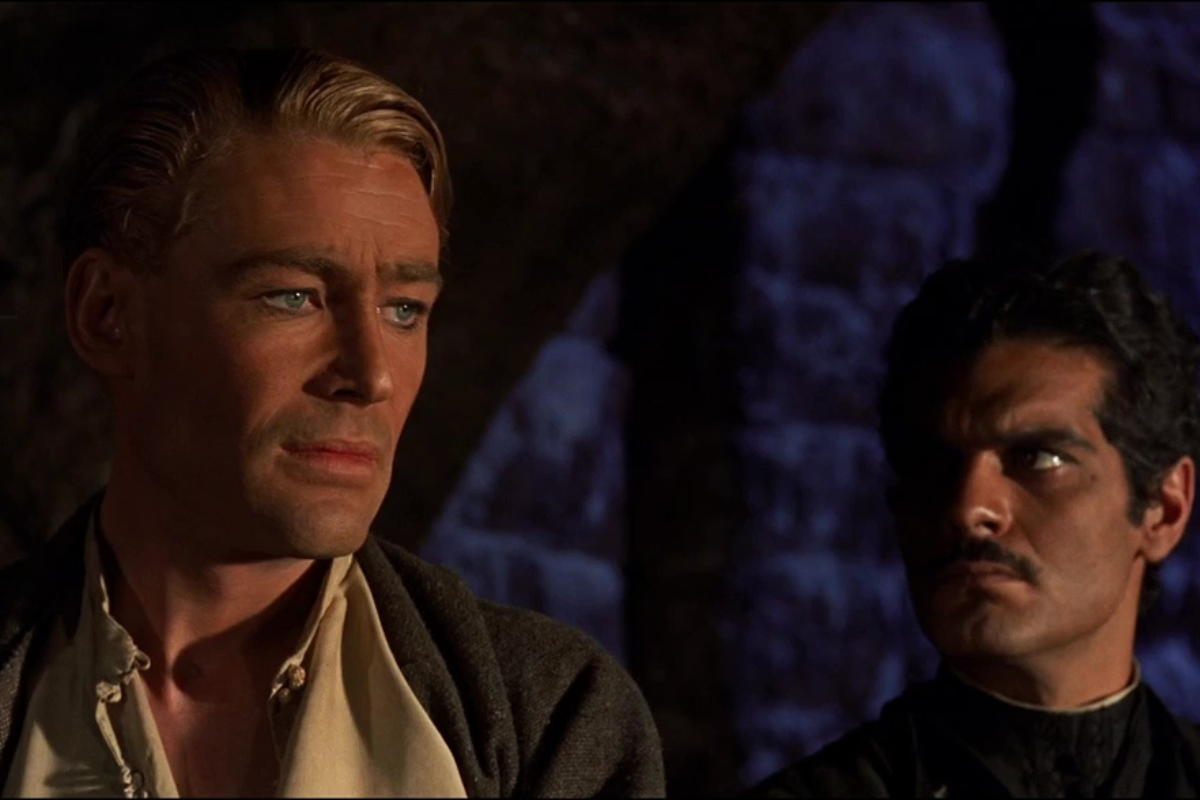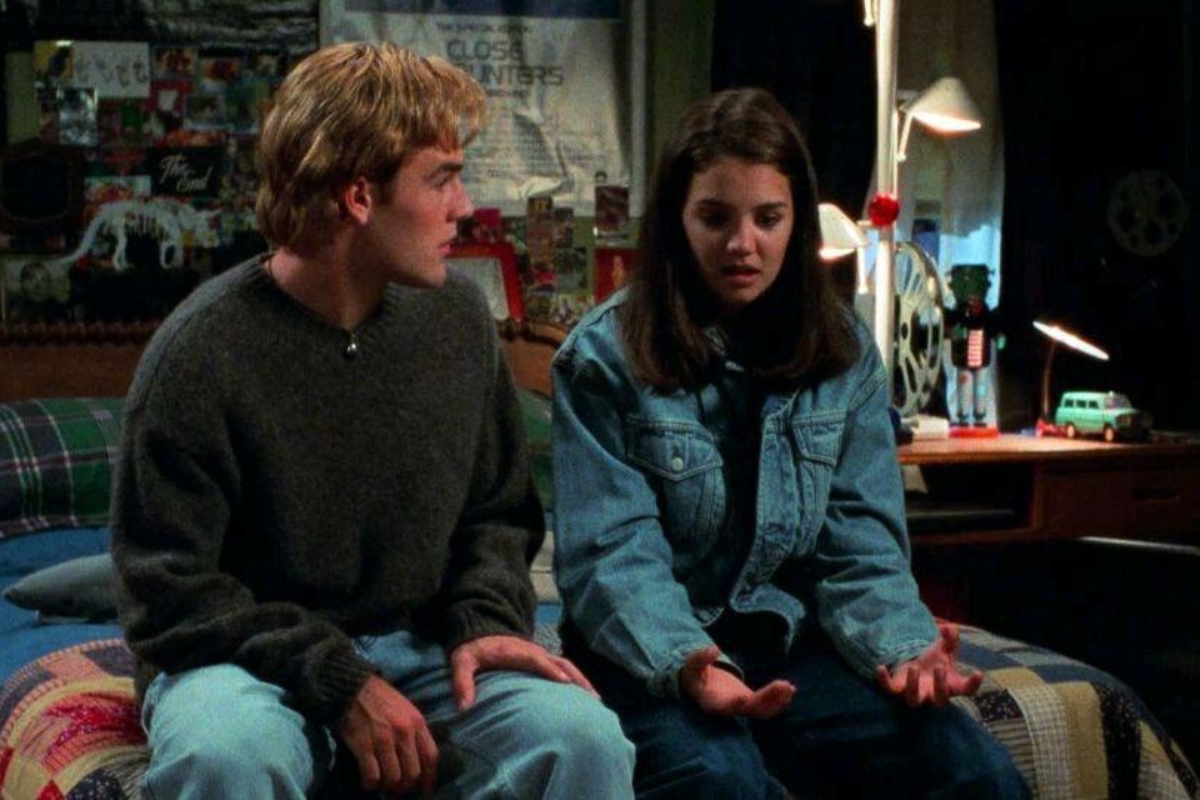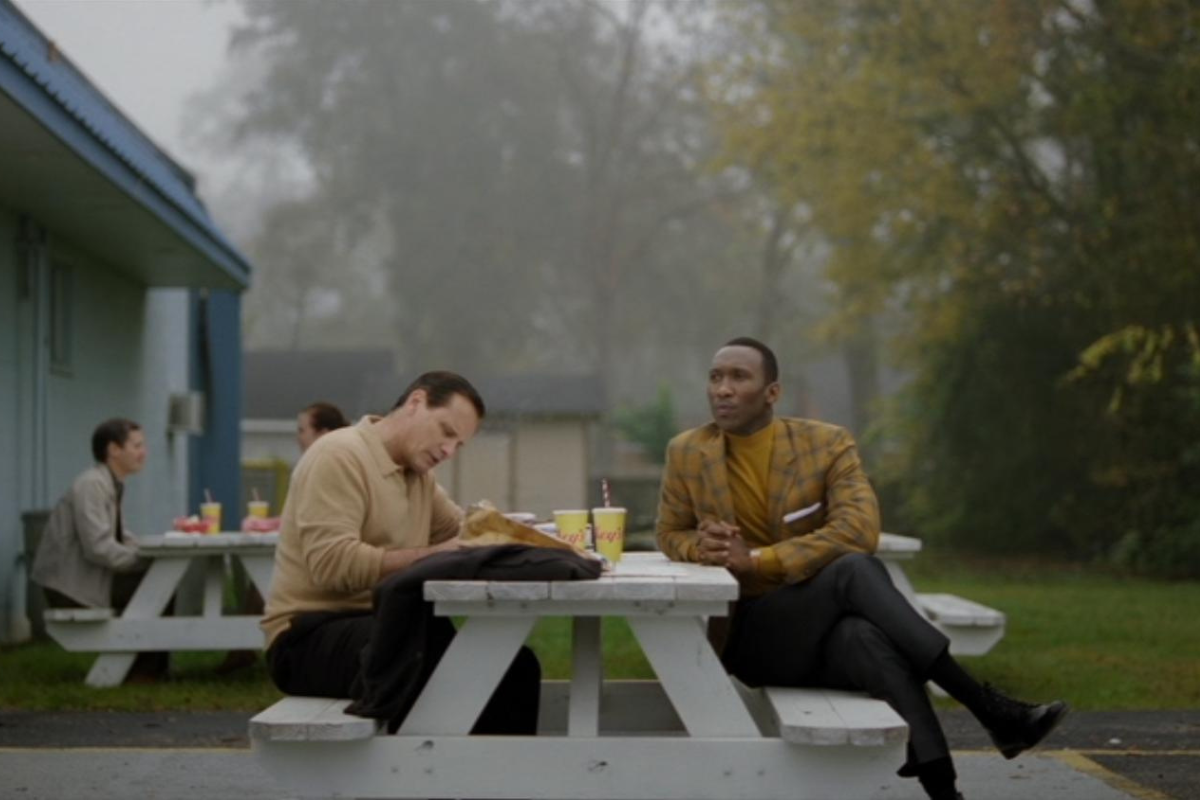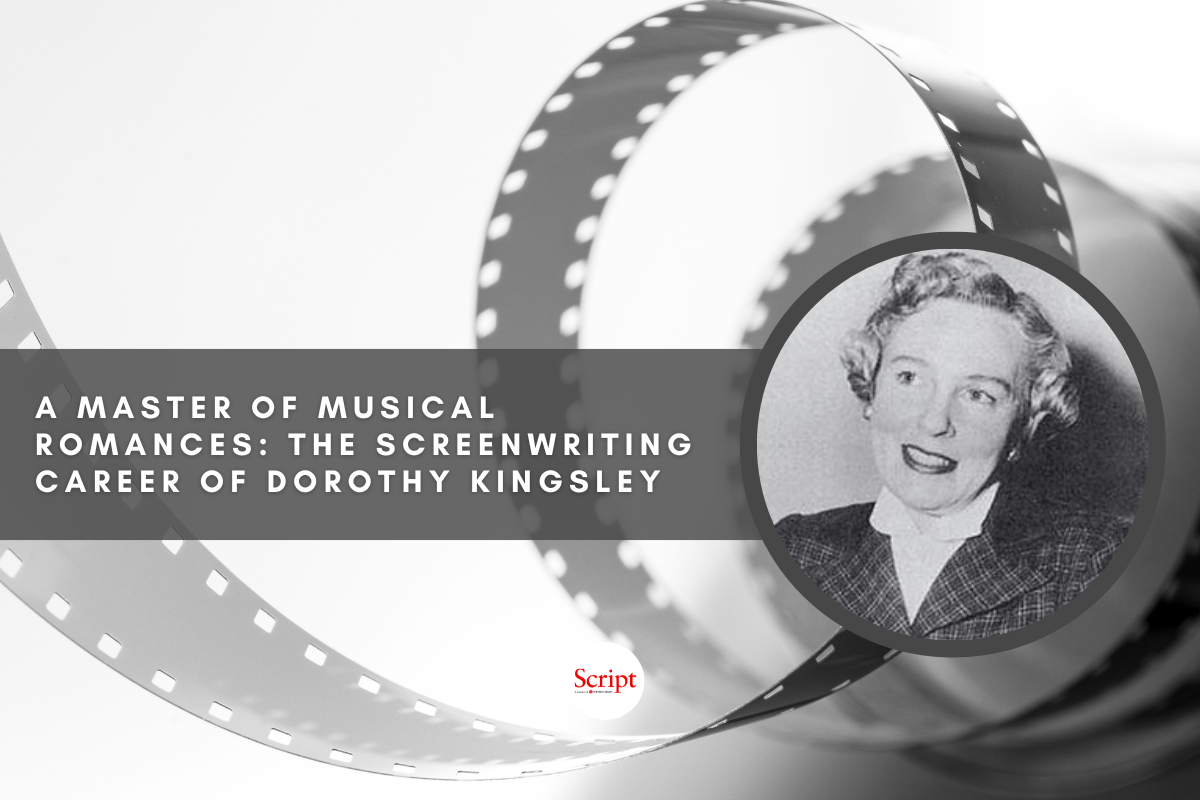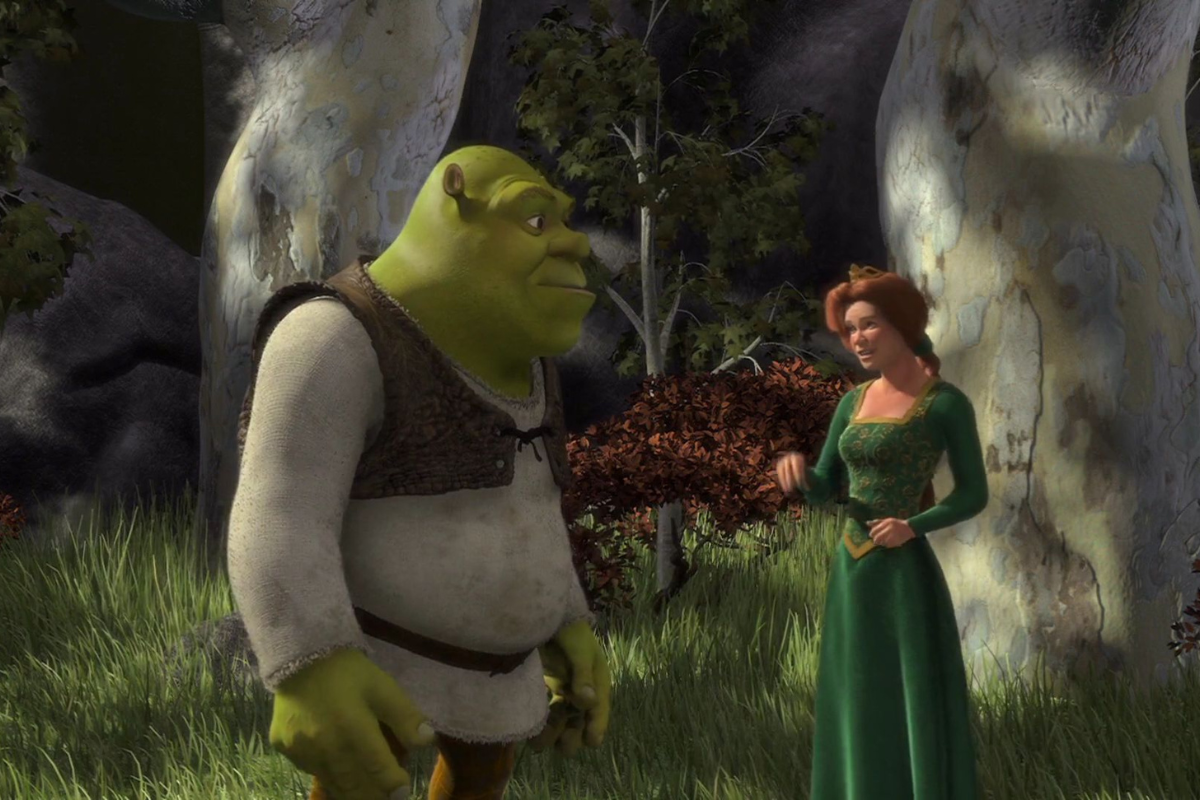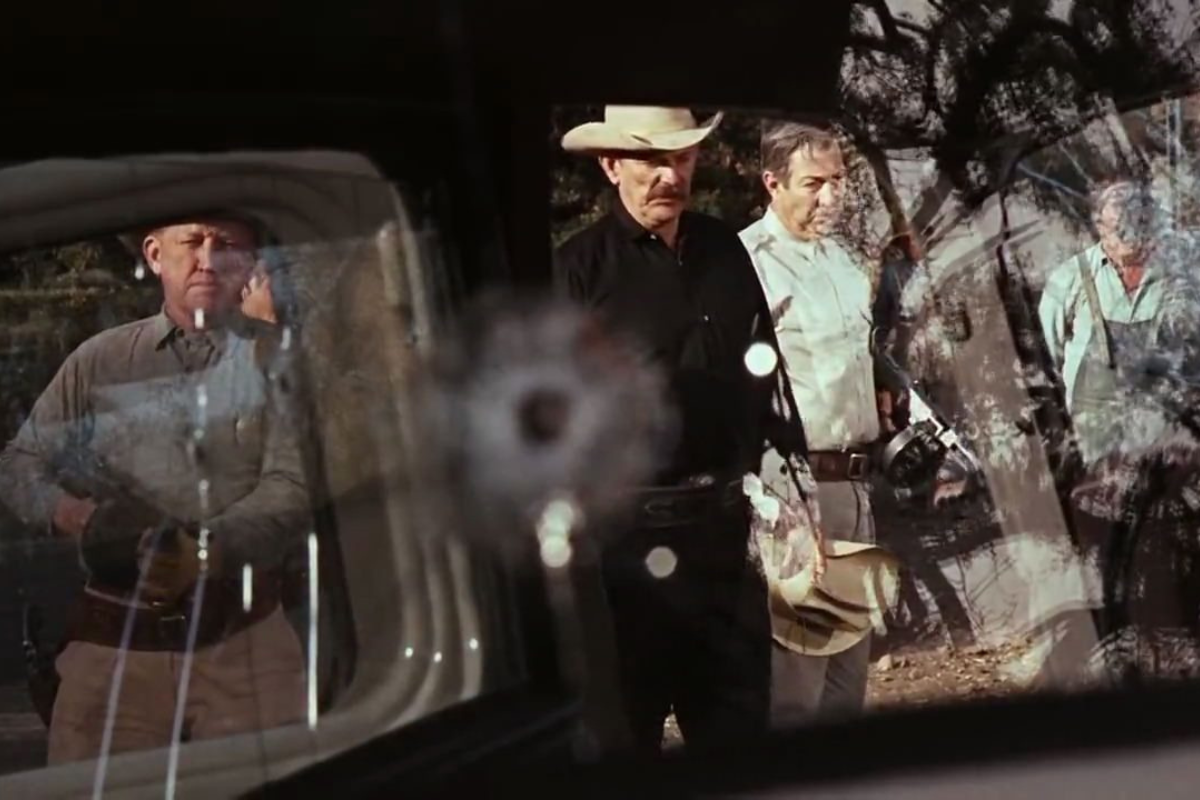Most Hitchcock Films are Harrison Films
Script contributor Dr. Rosanne Welch celebrates the female screenwriters who came before us with this month’s spotlight on prolific and trailblazing screenwriter Joan Harrison, the first screenwriter to earn two Academy Award nominations in the same year.
The main problem with the auteur theory that allows phrases like “Hitchcock film” to seep into our conversations is that it dismisses the work of the screenwriter who comes up with the theme, the plot, and the characters – or if they are adapting a novel, which themes, which plot lines and which characters they choose to include, combine or leave behind. The auteur theory is a false idea that grants all the credit for a film to one person despite our understanding that film is a collaborative medium.
The films written and later produced by Joan Harrison prove this fallacy quite well. Because she began her work in film as an assistant to Hitchcock, many of her first scripts were directed by him and carry his possessory title. But they are Harrison films in that Harrison made the major creative decisions and wrote all the drafts. In the process, she became the first female screenwriter to be nominated for the Best Original Screenplay Oscar (when the category was created in 1940 – before that several women chronicled in this column had won for Best Story.)
Harrison was also the first screenwriter (male or female) to earn two Academy Award nominations in the same year in separate categories. That year she co-wrote the screenplay for Foreign Correspondent (1940) (original) and Rebecca (1940) (adapted). Rebecca would win for Best Film, the only time a Hitchcock film won in that category.
Born in England in 1904 Harrison began life as the daughter of a journalist who dreamed of that career for herself. Her father, however, encouraged a broader education so she attended Oxford University and then the Sorbonne and focused on the study of English Literature. This advice, and her decision to follow it, would prove beneficial to her later writing career.
As with many educated women of the day, however, she first found employment as a secretary to a director, Hitchcock. The position required much more than merely typing letters. Today we would call her a development director as he tasked her with reading and doing coverage on countless scripts as he searched for new projects. In this, she worked closely with Alma Reville, who had married Hitchcock in 1926. (It is worth noting that, being his wife, Reville took no credit for her contributions to their films.)
Harrison quickly moved up from continuity assistant to script consultant, dialogue writer, and finally scenarist by 1939 with her first screenwriting credit Jamaica Inn (1939). On top of all that, Hitchcock put her in charge of negotiating options with authors. When David O. Selznick optioned the novel he brought Hitchcock on board to direct and Harrison moved to Hollywood as well to continue their creative relationship. She was instrumental in winning the option for Rebecca from novelist Daphne Du Maurier as the author trusted Harrison to respect her story.
Harrison became a producer on later projects including Phantom Lady (1944), The Strange Affair of Uncle Harry (1945), Nocturne (1946), and They Won't Believe Me (1947). In 1958 she married thriller novelist and fellow Londoner Eric Ambler and moved into television, producing Alfred Hitchcock Presents. After that, she and Ambler moved to Switzerland in 1969 and to Britain in 1985. Harrison died there in 1994.
If you’d like to learn more about the women highlighted in this column, and about the art of screenwriting while earning your MFA, our low residency Stephens College MFA in TV and Screenwriting is currently accepting applications.
Learn more about the craft and business of screenwriting and television writing from our Script University courses!
Dr. Rosanne Welch, Executive Director of the Stephens College MFA in TV and Screenwriting, has television credits including Beverly Hills 90210, Picket Fences, ABC News/Nightline and Touched by an Angel. Her award-winning publications include When Women Wrote Hollywood and Women in American History (on the ALA list of 2017’s Best Historical Materials). Welch is Book Reviews editor for Journal of Screenwriting; on the Editorial Boards of Written By magazine and California History Journal and gave a 2016 TEDxCPP talk: “The Importance of Having a Female Voice in the Room”.
Find Dr. Rosanne Welch online: Instagram @drrosannewelch | YouTube DrRosanneWelch | Stephens College MFA Twitter @mfascreenwriter


